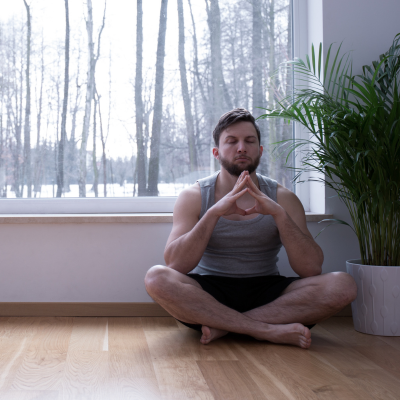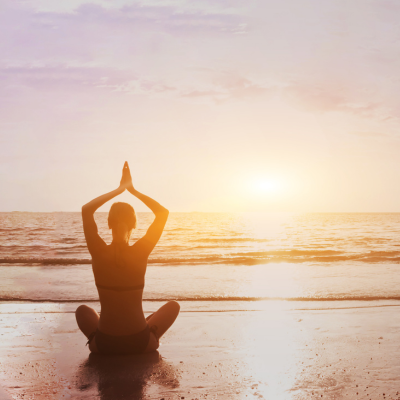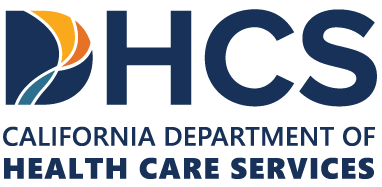Yoga and Addiction Recovery
Recovery from drug or alcohol addiction involves more than discontinuing the use of drugs or alcohol. Effective, whole-body recovery enables people to rebuild balanced and healthy lives. Many in recovery battle stress, anxiety, and negative thought patterns that can prompt relapse. Yoga is a powerful way to manage these challenges, helping individuals reconnect with their bodies, calm their minds, and rebuild resilience.
Yoga is not a fitness trend but an ancient practice that’s helped people achieve mental clarity and emotional stability for thousands of years. When incorporated into addiction treatment, yoga can complement evidence-based therapy and support groups, delivering a holistic approach to healing that soothes body, mind, and spirit. If you’re struggling with substance abuse, read on to learn how to get effective, science-backed addiction treatment that includes yoga.


The Mind-Body Connection in Recovery
Substance use can leave the body and mind feeling disconnected and disjointed. Many people in recovery report feeling numb, anxious, or unable to cope with emotions without substances. Yoga bridges this gap by strengthening the mind-body connection.
Through controlled breathing, physical postures, and meditation, yoga teaches individuals how to stay present and manage discomfort. Instead of reaching for drugs or alcohol to numb distress, someone practicing yoga learns to observe their feelings, acknowledge them, and let them pass. This is a skill that’s integral to long-term abstinence from addictive substances.
Benefits of Yoga in Addiction Recovery
Incorporating yoga into a recovery routine can deliver physical and mental health benefits. Here’s how it helps:
Reduces stress and anxiety
Stress is one of the leading triggers for relapse. Yoga lowers cortisol and adrenaline levels, the hormones responsible for stress and anxiety. Deep breathing and mindfulness practices activate the body’s relaxation response, making it easier to manage cravings and emotional distress.
Improves emotional regulation
Addiction disrupts the brain’s ability to regulate emotions. Yoga helps restore balance by increasing self-awareness and self-control. Many people in recovery find that regular yoga helps them respond to challenging emotions with clarity rather than impulsivity.
Promotes physical healing
Substance use can take a toll on the body, weakening the immune system, damaging organs, and reducing overall energy levels. Yoga helps rebuild strength, improve flexibility, and increase circulation. It also supports the body’s natural detoxification process, which is especially beneficial for those recovering from chronic substance abuse.
Enhance sleep quality
Insomnia is common in early recovery, making it harder to focus and maintain emotional stability. Yoga promotes relaxation, reduces nighttime anxiety, and helps regulate sleep patterns, leading to deeper and more restorative rest.
Encourages mindfulness
Mindfulness—the practice of staying present without judgment—is a core component of yoga. This is particularly helpful in addiction recovery, where individuals may feel burdened with guilt about the past or anxiety about the future. Yoga teaches them to focus on the present moment, reducing stress and engendering inner peace.
Provides a healthy alternative to old habits
Addiction often becomes a routine—an automatic response to stress or negative emotions. Yoga offers a new, healthy habit that provides relief without harmful consequences. This new routine can replace the old, reinforcing long-term recovery.
Types of Yoga for Addiction Recovery
- Hatha yoga: A gentle and beginner-friendly practice that focuses on basic postures, breathwork, and relaxation. It’s ideal for those new to yoga.
- Vinyasa yoga: A more dynamic style that links movement with breath. It helps build strength and flexibility while also promoting mindfulness.
- Kundalini yoga: Known for its focus on breathwork, chanting, and meditation, Kundalini yoga can help clear emotional blockages and improve mental clarity.
- Restorative yoga: A deeply relaxing practice that uses props like blankets and bolsters to support the body in restful poses. It’s excellent for reducing stress and encouraging emotional healing.
- Trauma-informed yoga: Specifically designed for individuals recovering from trauma, this type of yoga focuses on safety, empowerment, and mindful awareness.

How to Incorporate Yoga into a Recovery Routine
Starting a yoga practice doesn’t require expensive equipment or a gym membership. Here are some simple ways to include yoga in daily recovery efforts.
Take a class
Many treatment centers offer yoga as part of their programs, but local studios and online classes are also great options. Finding a class that focuses on mindfulness and relaxation can be ideal for those transitioning from addiction to abstinence.
Follow guided practices at home
There are countless free yoga videos available online. Starting with short, beginner-friendly sessions can make the practice feel more approachable.
Practice deep breathing
Even without a full yoga session, practicing deep breathing exercises can help reduce stress and improve focus. A simple technique like inhaling for 4 seconds, holding for 4 seconds, and exhaling for 4 seconds can be remarkably calming.
Set a routine
Building consistency is key. Whether it’s 5 minutes of stretching in the morning or a full yoga session in the evening, making yoga a regular part of the day can reinforce its benefits.
Use yoga as a coping tool
Whenever stress, cravings, or emotional distress arise, turning to yoga—even for a few minutes—can provide relief. This habit can replace unhealthy coping mechanisms over time.
The Spiritual Aspect of Yoga and Recover
Many recovery programs focus on spiritual growth. Yoga aligns with this by promoting inner peace and self-awareness. Yoga encourages people to connect with something greater than themselves—whether that’s a higher power, nature, or their inner wisdom.
For those in 12-step programs, yoga can complement the principles of surrender, self-reflection, and personal growth. It provides a space for individuals to quiet the mind, listen to their inner voice, and cultivate gratitude.
Get Evidence-Based Addiction Treatment with Yoga Therapy in California
All our treatment programs deliver personalized therapies that blend traditional, science-backed treatments with holistic interventions like yoga and fitness therapy. All addictions are unique and everyone has different needs and recovery goals, so we provide fully customized treatment plans to reflect this.
When you’re ready to take action and transition from active addiction to sustained recovery, contact our admissions team for immediate assistance.






